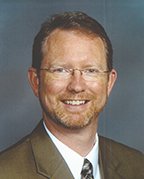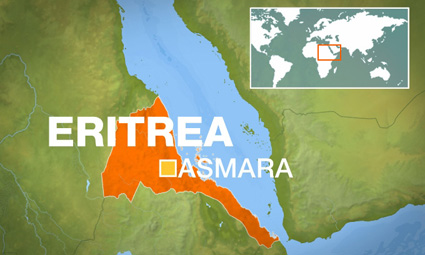DALLAS—Two Baptists with connections to the United Nations and a member of the Baptist World Alliance Commission on Religious Freedom urged Baptists to take action on behalf of victimized Christians globally.
 Scott StearmanScott Stearman, pastor of Metro Baptist Church in New York, and Mississippi attorney Mark Wiggs, both coordinate the relationship between the Cooperative Baptist Fellowship and BWA at the U.N. Elijah Brown, former faculty member at East Texas Baptist University and now staff member at the Wilberforce Initiative, joined them in a panel discussion on international religious liberty during a CBF general assembly breakout session.
Scott StearmanScott Stearman, pastor of Metro Baptist Church in New York, and Mississippi attorney Mark Wiggs, both coordinate the relationship between the Cooperative Baptist Fellowship and BWA at the U.N. Elijah Brown, former faculty member at East Texas Baptist University and now staff member at the Wilberforce Initiative, joined them in a panel discussion on international religious liberty during a CBF general assembly breakout session.
“The United Nations is the only thing that is doing anything about human rights globally,” said Stearman, explaining BWA involvement with the U.N. “If there’s a way to have an advocacy voice or influence, than we potentially could make a major impact internationally.”
Stearman detailed the good, the bad and the ugly of religious liberty on a global scale. The good news is the BWA has influence in the United Nations, and real change can come from this partnership, he noted.
On the bad side, no one has found the most effective way to make change yet—but advocates for global religious liberty have no intention of throwing in the towel, he insisted.
“I was very pleased to see the level of discussion in front of influential people,” said Stearman. “I’ve been to meetings that are like our committee meetings at church—just a bunch of people sitting around, wishing that the world were a better place.”
 But Stearman acknowledged an ugly reality—worsening situations for global religious freedom. The last three years have seen the largest displacement of people due to religion in history.
But Stearman acknowledged an ugly reality—worsening situations for global religious freedom. The last three years have seen the largest displacement of people due to religion in history.
Brown has seen firsthand the effects of relocation based on religion.
“Several months ago, I found myself on the front lines on the war zone against the Islamic State,” Brown said. “These citizens are facing genocide. Since 2003, 70 percent of the homes of Christians have been illegally confiscated by the government.”
Sign up for our weekly edition and get all our headlines in your inbox on Thursdays
ISIS, the Iranian government and other dominant groups in the Middle East pushed Christians out of their homes and lands they have lived in for thousands of years, he said.
“If immediate action is not taken, we will witness the literal decline and loss of religious minorities in Iraq into nonexistence,” Brown said.
Part of the answer, he believes, lies in further religious education. Brown said it is important to educate people widely about the necessity of religious liberty.
In northeast Africa, Eritrea has one of the strictest regimes in the world, more so than North Korea, he noted. After spending five days on the ground, Brown wrote a report in conjunction with the BWA to the United Nations detailing the conditions of religious persecution. Since then, relief arrived for the Christians in Eritrea.
“We were able to bring this to the attention to the U.N. Baptists were recognized for advocacy on this,” Brown said.
He suggested steps Christians can take, ranging from praying for the victims and for those working for the cause, to actively advocating for global religious liberty. Everyone can do something for this effort, he insisted.
“When we are tempted to demonize the other, to give up hope that real change will occur, to not engage because it looks too hard, those are the voices of the enemy,” Brown said. “We are to be people of hope and resurrection.”
Wiggs, who serves with CBF as volunteer BWA liaison to the U.N., challenged participants at the breakout session to become personally involved in advocating for global religious liberty.
“We’re forming our way, but we’re seeing some ways open up that we didn’t see when this initiative started. Continue to bring us your stories, experiences and ideas,” Wiggs said.
















We seek to connect God’s story and God’s people around the world. To learn more about God’s story, click here.
Send comments and feedback to Eric Black, our editor. For comments to be published, please specify “letter to the editor.” Maximum length for publication is 300 words.